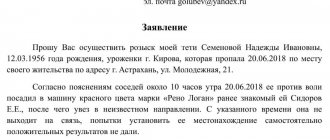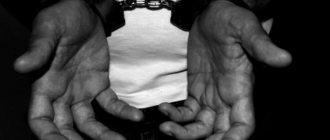Related article:
SWIFT and gold and foreign currency reserves: the most important thing
From March 1, 2022, a ban will be introduced on foreign exchange transactions involving the provision of foreign currency by residents in favor of non-residents under loan agreements. Also, residents will not be able to credit foreign currency to their bank accounts outside the Russian Federation and make money transfers without opening a bank account using electronic means of payment provided by foreign payment service providers.
Public companies, until December 31, 2022, have the opportunity to purchase shares they have placed (bayback) from May 2022, subject to a number of conditions. This rule does not apply to securities acquired in order to reduce their total quantity. In particular, such securities must be admitted to organized trading and are acquired on the basis of applications addressed to an unlimited number of participants. The weighted average price of such shares, determined for any three months starting from February 1, 2022, should decline year-on-year by 20 percent or more, as should the value of the main stock market index.
In addition, credit institutions receive the right to open a bank account for a client - an individual without his personal presence or his representative when transferring money from his account in one company to another. In this case, the credit institution transfers to the company opening the account the information established during the identification of this client - an individual.
When did you steal and when did you rob? Comparison of formulations
| Compound | Robbery under Art. 161 of the Criminal Code of the Russian Federation | Theft under Art. 158 of the Criminal Code of the Russian Federation |
| An object | Property relations + human health (optional) | Property relations |
| Subject | General, responsibility begins at age 14 | General, responsibility begins at age 14. |
| Subjective side | Direct intent + selfish goal. The person knows that he acts OPENLY. | Direct intent + selfish goal. The person believes that he is acting secretly, that his actions are not noticed by other people. And he wants to seize the property SECRETLY. |
| Objective side | Property is confiscated openly. | Property is confiscated secretly. |
Robbery is a type of acquisitive crime, so it is very important for judicial practice to take into account all factors and carefully study the circumstances of the case. Depending on the subjective and objective side, the qualification of the crime may vary. But the fate of people depends on this.
Repatriation of the economy
The decree signed by Vladimir Putin will make it possible to replenish the foreign exchange reserves of the Bank of Russia instead of those blocked in foreign banks, where they were previously placed in the corresponding currencies, Valery Korneychuk, a teacher at the department of financial disciplines at the Higher School of Financial Management, is sure. The ban on foreign exchange transactions under loan agreements in favor of non-residents also blocks the withdrawal of foreign currency abroad.
In essence, the analyst explains, a requirement is being introduced for the full repatriation of foreign currency earnings by residents when carrying out export operations. This obliges exporters to return all proceeds received from the sale of raw materials and goods, provision of services, and foreign exchange earnings to authorized banks in accordance with the transaction passport. Currency transfers are prohibited without opening a foreign currency account using foreign payment systems. The introduced rules for the repurchase by PJSC of its previously placed shares under the buyback procedure will help maintain companies’ control over the blocks of their outstanding shares.
Special protective measures in the economy are not Russia’s only response to the sanctions adopted by the West, adds Valery Korneychuk. Russia has not yet officially announced counter-sanctions. Their symmetry or asymmetry will depend on the analysis of the restrictions introduced by the United States and EU countries.
Our country will act out of its own interests, the expert is sure. Thus, as part of the operational response measures, the airspace for EU countries has already been blocked. Roscosmos suspends the launch of European space satellites from the French Kourou test site. Sanctions against Russia will have the opposite effect on the one who imposes them, concludes Valery Korneychuk, and it will be noticeable.
Examples of robbery and theft from life: let's try to figure it out
| Life situation | Robbery | Theft |
| A thief breaks into an empty apartment and takes jewelry. There is no one next to him, and he is well aware that he is taking possession of other people’s property unlawfully. | +In this case, secret theft of property is committed. | |
| The thief enters the apartment, but sees the owner there. In front of the owner of the apartment, he grabs a glass vase and jumps out through the window. | +Open theft: the thief knows that he is being seen, that he is taking property “openly.” Even if the damage is minimal, the person will be judged under a more “strict” article. | |
| A thief at a luxurious banquet with 100 people quietly removes the bracelet and puts it in his purse. | +The sign of “secret theft” remains. | |
| A friend takes off your bracelet in your presence and puts it in her purse before your eyes. You trust her, so you can't believe she took the bracelet forever. | +Again, the sign of “secret” theft remains, since you do not realize the danger of what is happening. | |
| You decided to steal sausage from a store without other customers noticing, stuffed it under your coat, but security detained you on the way out. There are cameras in the store, but you didn't know about them. | +The subjective side is very important here: you believe that you are acting unnoticed by other people. | |
| You went to a store where there are video cameras to buy sausage. On your way out you are stopped by security. | +You know that there are cameras installed in the store (which means that you are operating OPENLY), you are aware of this. | |
| You decide to steal a bag of potatoes from a deserted factory. During the theft, a person from a neighboring high-rise building was watching you, but you didn’t know it. | +You believe that you are acting secretly. As soon as a person from a neighboring high-rise building shouts something to you, and you realize that you have been “burnt”, the continuation of the seizure of property can escalate into robbery. | |
| You stand in the middle of the store, in front of other customers, you put the sausage under your coat and at the same time shout: “Yes, I’ll take it!” I take it because it’s mine by right!” Or something like that. Buyers think you're crazy and don't pay attention. | +The subjective side is important here: you realize that other people can see you (and even want this). | |
| You came to the nursery to steal a toy. In front of 12 children, you took her and disappeared. | +Such an act will be classified as theft, since it occurred in front of those who could not realize the illegal nature of your actions. The same applies to the situation if you were to seize property in the presence of a sleeping person or someone high on drugs. | |
| You quietly took her necklace for 1,000,000 rubles from your friend to go on a date, and then return it. | This is not theft or robbery, since you do not have a selfish goal to take possession of someone else's property. This could be Art. 330 “Arbitrariness” or other articles of the Criminal Code, depending on the specific conditions and circumstances of the case. | |
IMPORTANT! All situations given are for illustrative purposes only. To understand each specific situation, it is necessary to study the objective and subjective side of the actions. But the position: “I didn’t know that they saw me!”, “I thought I was acting unnoticed” can save you from punishment for robbery under Art. 161 of the Criminal Code of the Russian Federation. Remember: when answering the question of what robbery is, the definition immediately indicates the OPEN nature of the crime.
What can you “sit down” for for a long time? Or qualifying (aggravating) signs of robbery
Part 2 of Article 161 directly lists the qualifying signs of robbery:
- The act is committed with illegal entry into an object (home, premises, other storage).
- The act is committed with the use of violence, which does not pose a danger to life and health. There may also be a threat of such violence. This could be psychological violence in the form of threats: “I’ll tear you into pieces!” “Yes, you will crawl on my knees!” and others. The taking of property will be considered violent if the robber causes harm not only to the owner, but also to other people. The form of violence can be different: handcuffing, tying hands, leaving someone in a closed area, and others.
- The act caused damage on a large scale. At the time of writing, this is 250,000 rubles.
- The act is committed by a group of persons by prior conspiracy. This means that 2 or more people agreed IN ADVANCE to commit a robbery.
INTERESTING! If out of 2 people one is 32 years old and the second is less than 14 years old, then there will be no qualifying personnel. This is due to the fact that persons under 14 years of age are not recognized as the subject of a crime.
IT IS IMPORTANT TO KNOW! There will be a qualifying composition only if the use/threat of use acted as a means of taking possession of property. For example, you locked the owner in order to take out your grandmother’s old set from the house.
If you entered the house, calmly began to take out your grandmother’s set, carried it to the truck, got behind the wheel and drove off, and after that a neighbor jumped out onto the road with the words: “Why are you doing this!”, the robbery will not be considered violent (you have already took possession of the property, the act is over).
If you entered the house, calmly began to take out your grandmother’s dinnerware, ALMOST carried it to the truck, and then a neighbor ran up to you in order to prevent you, then the act will be considered violent robbery.
What punishment is provided for committing a crime under Part 2 of Art. 161?
Criminal liability is clearly regulated:
- Forced labor for up to 5 years.
- Or imprisonment for up to 7 years + a fine of up to 10,000 rubles or in the amount of wages (other income).
- Or restriction of freedom for up to 1 year.
For especially malicious acts - specially qualifying offenses (Part 3 of Article 161).
Part 3 Art. 161 contains 2 qualifying features:
- The act caused damage on a particularly large scale. At the time of writing this article, 1,000,000 rubles are recognized as such.
- The act was committed by an organized group.
Since such acts have an increased danger to society, the punishment for them is appropriate: imprisonment for a term of 6-12 years + a fine of up to 1,000,000 rubles (or in the amount of five years’ salary).
What is an "organized group"? Let's study the example of Don Corleone
These are not just accomplices who got together to commit one theft. An organized crime group has the same characteristics that Don Corleone's gang had:
- Sustainability. The group was formed a long time ago, it has committed criminal acts more than once, special training of participants (“pickpockets”, “burglars”, “stickers” and others), long preparation for committing a crime and a thorough analysis of possibilities).
- Availability of an organizer. Not everyone may know about this person, but his words and actions decide the fate of members of the criminal group, as well as future victims.
- Pre-developed action plan. In it, each group member has his own role.
- Distribution of roles both in the organized group itself and when committing individual crimes.
Such activities pose an increased danger to society, and therefore appropriate punishments are provided. But criminal groups are well “encrypted,” which allows them to carry out their activities for many years without being punished.
How much do they pay for robbery? How long?
In criminal proceedings for robbery, criminal liability is provided under Article 161 of the Criminal Code of the Russian Federation .
types of criminal penalties may be imposed for its commission :
- Compulsory work for a period of 180 to 240 hours ;
- Correctional labor for up to 2 years ;
- Arrest for up to 6 months ;
- Imprisonment for up to 4 years .
If this crime is committed:
- By a group of persons by prior conspiracy;
- With illegal entry into a home or other premises;
- In a particularly large size;
- Using violence that is not dangerous to life and health;
- With threats of violence.
Taking into account the above points, possible punishment includes imprisonment for up to 7 years , with a possible fine of up to 10,000 rubles or 1 month’s salary.
If the robbery was committed by a group of persons by prior conspiracy, on an especially large scale, then the punishment provides for a term of imprisonment from 6 to 12 years , with a possible fine of up to 1,000,000 rubles or in the amount of the income of the convicted person for a period of up to 5 years.
Criminal liability for robbery begins at the age of 14 .
When attempting to commit a robbery that fails for reasons beyond the control of the offender, as well as when preparing for a crime that was not committed, criminal liability is charged.
It occurs on the basis of the crime of “ attempted robbery ”, the punishment in this case is imposed under Article 30 of the Criminal Code of the Russian Federation .
Responsibility for an unfinished crime is significantly lower, which allows the attacker to promptly refuse to participate in the robbery and get by with minimal costs.
Judicial practice: real situations and court responses
Judicial practice (Resolution of the Plenum of the Supreme Court No. 29 of 2002 “On judicial practice in cases of theft, robbery, robbery”) becomes the fundamental act that judges use when making decisions on the classification of a crime, sentencing and other subtleties. If you know the main provisions of the act, you will be able to develop an adequate defense in court. So, the main provisions of judicial practice:
- The crime is complete when the attacker has seized the property, taken possession of it and can use it at his own discretion (clause 6 of the Resolution).
- Liability under Part 2 of Art. 161 for acts committed by a group of persons also occurs when the property is confiscated by only 1 person, and the rest take part: they break open the bars, “stand on the rack” and perform other actions (clause 10 of the Resolution).
- If a person did not commit robbery himself, but involved in this act persons under 14 years of age, incapacitated and other persons (they are not the subject of the crime), then this person is recognized as the direct perpetrator + bears responsibility under other articles of the Criminal Code of the Russian Federation (clause 12 of the Resolution) .
- When deciding on the illegality of entering a home during robbery and other types of theft, the court is obliged to find out the person’s intentions (clause 19). For example, if a person was at the site legally (visiting, visiting friends, acquaintances or relatives), and then committed a crime, then there will be no qualifying elements.
The above situations once again prove how important it is for courts to pay attention to the objective and subjective side of the commission of acts.
Statute of limitations for robbery. How to count correctly?
The established statute of limitations depends on the category of crime (minor gravity, moderate gravity, grave, especially grave). The category of crime is determined by the duration and type of punishment.
To make it easier for you to understand, take a look:
| Article norm for robbery | Maximum sanction (punishment) and category of crime | Limitation periods |
| Part 1 of Article 161 | Imprisonment for up to 4 years. Refers to crimes of medium gravity. | 6 years |
| Part 2 of Article 161 | Imprisonment for up to 7 years. Is serious. | 10 years |
| Part 3 of Article 161 | Imprisonment for a term of up to 12 years. Belongs to the category of especially serious ones. | 15 years. |
What are the statutes of limitations?
If the established statute of limitations expires from the day the crime was committed, the person is simply released from criminal liability. People call these “hanging cases”; many films are made about such categories of cases. And every law enforcement officer has several dozen such cases “suited for archive.” It is important for you to know about statutes of limitations:
- They are calculated from the day the crime was committed. But the terms for each crime are calculated separately.
- The running of the statute of limitations is suspended if a person evades trial and investigation.
- The question of the possibility of using statutes of limitations against a person who has committed a particularly serious crime for which capital punishment is established is decided by the court.
- Persons who have committed crimes against peace, security and humanity (genocide, ecocide and others) cannot be released from liability due to the expiration of the statute of limitations.
Video: Lawyer on the intricacies of the concepts of theft, robbery and robbery
With qualifying characteristics in accordance with Art. 161 of the Criminal Code of the Russian Federation
Violent
The impact can be both physical and psychological . Physical includes:
- causing bodily harm;
- restricting the victim’s movements (tying hands or feet, using means that limit the ability to move, holding the victim in a closed room);
- any other impact on the victim’s body.
What sanctions will follow for committing robbery with violence:
- forced labor for up to 5 years or;
- imprisonment for a term of up to seven years with a fine in the amount of up to ten thousand rubles or in the amount of the wages or other income of the convicted person for a period of up to one month or without it and with restriction of freedom for a term of up to one year or without it.
By a group of persons by prior conspiracy
A group of persons with a preliminary conspiracy under Part 2 of Art. 35 of the Criminal Code of the Russian Federation are persons who initially planned the crime. There are several nuances in the context of the robbery that become clear during the investigation:
- whether the crime was planned before the robbery began;
- robbery is spontaneous without prior agreement, but still committed by a group of people.
Robbery with an organized group is such when, by prior conspiracy, direct theft is carried out by one person, and others act in accordance with pre-assigned roles.
Such persons are called “co-executors”. They are qualified as accomplices to the crime with reference to Part 5 of Article 33 of the Criminal Code. The punishment for this type of robbery is:
- forced labor for up to 5 years or;
- imprisonment for a term of up to seven years with a fine in the amount of up to ten thousand rubles or in the amount of the wages or other income of the convicted person for a period of up to one month or without it and with restriction of freedom for a term of up to one year or without it.
We talked in more detail about the robbery committed by prior conspiracy with a group of people in a separate publication.
With penetration into the premises
Premises in the context of paragraph c) of Part 2 of Article 161 of the Criminal Code of the Russian Federation means a dwelling or any other premises, regardless of the purpose of its use (residential/non-residential).
Reference. Burglary is also considered the theft of property without directly entering the premises.
For example, when a burglar puts his hand through a kiosk window and steals goods from there. Impersonating another person for the purpose of entering a premises and stealing property is also considered home invasion robbery.
Assisting in a burglary involves assisting the burglar (for example, handing over a house key or guaranteeing the burglar).
Punishment:
- forced labor for up to 5 years or;
- imprisonment for a term of up to seven years with a fine in the amount of up to ten thousand rubles or in the amount of the wages or other income of the convicted person for a period of up to one month or without it and with restriction of freedom for a term of up to one year or without it.
Crime on a large and especially large scale
Robbery is considered major when the value of the stolen goods exceeds 250 thousand rubles.
Punishment:
- forced labor for up to 5 years or;
- imprisonment for a term of up to seven years with a fine in the amount of up to ten thousand rubles or in the amount of the wages or other income of the convicted person for a period of up to one month or without it and with restriction of freedom for a term of up to one year or without it.
Particularly large sizes start from one million . In such cases, the offender is punishable by imprisonment for a term of six to twelve years with or without a fine in the amount of up to one million rubles or in the amount of the wages or other income of the convicted person for a period of up to five years and with or without restriction of freedom for a term of up to two years. such.
By an organized group of people
A crime is recognized as committed by an organized group if it is committed by a stable group of persons who have united in advance to commit one or more crimes. In such cases, the offender is punishable by imprisonment for a term of six to twelve years with or without a fine in the amount of up to one million rubles or in the amount of the wages or other income of the convicted person for a period of up to five years and with or without restriction of freedom for a term of up to two years. such.
How often do people get robbed in Russia? Latest statistics from the Ministry of Internal Affairs
For January 2022, the department published statistics on the number of crimes on the official website. We specifically looked at the latest data, and this is what we saw:
The country recorded a serious increase in crimes: 171,900 (this figure is 4.6% more than in January 2015). Of these, 4,900 crimes were committed through robbery (almost 14% less than during the same period last year.
Be careful! Of the 33,300 crimes registered in parks, gardens, streets and squares, 2,300 were robberies. Things are not very calm on the roads, as well as on highways outside populated areas: 12 robberies were committed here.
The most “dangerous” in terms of robberies are considered to be the Udmurt Republic, the Yaroslavl region, the Vladimir region, the Republic of Karelia, the Mari El Republic, the Perm Territory (according to the “Criminal Map of Russia”).
Many jurists and legal experts say that the increase in the number of economic crimes (including robbery) is primarily associated with the state of the country’s economy.
By the way, there is interesting information on robbery statistics in other countries. According to data available to the UN Office on Drugs and Crime in 2011, Russia ranks 4th in robberies and 3rd in thefts .
Oil in exchange for technology: it's time for decisive action
The events of recent days have radically changed the configuration of economic international relations, states economist and director of innovation at Pyotr Zabortsev. After February 22, he says, our country crossed the Rubicon and began to actively defend itself militarily. The reaction of Western countries was not long in coming. But what we saw in this reaction, even in the very first economic measures, showed that there were no more rules.
“The West did not just restrict trade or financial transactions. Western countries under the leadership of the United States committed the largest robbery in recent history, stealing from our country almost half of its international gold and foreign exchange reserves. Persecution of Russians began throughout Europe. They threaten both confiscation of their property and death to them personally. In these conditions, our country must actively defend itself not only militarily, but also economically. And no later than Monday the first such decree was signed,” the expert notes.
The essence of these first measures comes down to protecting the country’s foreign exchange market and prohibiting the repayment of debt or equity capital to non-residents. Thus, the Russian Federation responded to the robbery of Russian reserves by refusing to pay on foreign loans and, in fact, by banning the withdrawal of capital, states Pyotr Zabortsev. This, in his opinion, is a serious and significant step, generally balancing the damage from the loss of part of the gold and foreign exchange reserves. The Europeans say they have “frozen” more than $300 billion of our reserves. However, the external debt of our residents is significantly higher than this amount. According to the Central Bank of the Russian Federation, as of January 1, 2022, it amounted to $478.2 billion.
However, you need to go further, think and make decisions in the field of trading. The West has decided to ban the export of technologies and a wide range of mechanical engineering, instrument making and electronics products to Russia. Everyone is hearing about the captured Russian cargo ship with cars in the English Channel, the economist points out. In these conditions, he believes, it is necessary to understand what is the point in exporting our raw materials to Western countries. He reminds us that most of the gold and foreign exchange reserves stolen from us were precisely the proceeds of exporters purchased by the Russian Central Bank.
“Moreover, even if we get money from them and are able to keep it, what can we buy with it. Why do we need money with which we cannot buy anything? In these conditions, the leadership of our country needs to go further. I believe that we need to directly condition the supply of our raw materials (hydrocarbons, metals, etc.) on the supply of the technologies, equipment, cars, etc. we need. Everything we need for the development of our economy and import substitution,” notes Petr Zabortsev.
“And this is only the first of many similar measures that we can take,” the analyst continues. “Their way of life, their economy, and their monetary system must be at risk. Stop tolerating unequal exchanges with Western countries. Stop receiving empty pieces of paper and promises from them in exchange for real goods that they can break at any moment. The time has come for decisive action. For every blow to our sensitive areas in the economy, we must respond with an even more sensitive blow to their economy. They want to destroy us and they say so directly. So let's destroy them first. And if one of them suddenly changes his mind and asks for our help, let’s strictly ask and demand in return what we, our people and our economy need.”
The most famous robbers in history
For a long time, the Criminal Code of 1903 did not use the term “robbery.” The concept appeared a little later, and all crimes committed with an attack were classified as robbery. Odessa was especially famous for this, which for a long time had the status of a criminal city (and still remains so, because everyone knows the words of the song: “A gang from the Amur arrived in Odessa...” Among the most famous robbers-“raiders” are Mishka Yaponchik, Lyonka Panteleev , gang of Tolstopyatov brothers, Mikhail Ustinovich, Yakov Koshelkov and others.
The greatest robberies in history are considered:
- Robbery of the Pennsylvania Bank on August 31, 1798 in Philadelphia (the first in the world). But US legislation looks at the concept of “robbery” somewhat differently.
- The 1963 Royal Mail train robbery in Buckinghamshire.
- US robbery of the Dunbar plant located in Los Angeles in 1997.
- The February 2003 robbery of $100,000,000 worth of diamonds, gold jewelry and cash.
There have been other crimes in history. We hope that our review has helped to better understand the essence of the term “robbery” in Russian legislation. Let you come across it only in articles.










